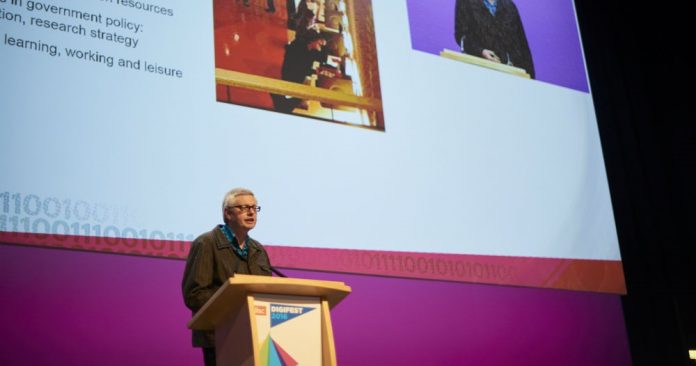Every element of space in universities needs to be challenged, an expert in designing spaces for learning told Jisc Digifest on Wednesday.
In his keynote speech to the event in Birmingham, University of Wales Trinity Saint David’s professor of practice Andrew Harrison said that across the sector, expensive facilities are being minimised.
Harrison, who co-wrote Design for Changing the Educational Landscape, added that there are lots of opportunities to use space more intensively, with university space lying empty on average 60% at any time.
He noted that universities are increasingly adopting more flexible models of using space, with more emphasis put on informal areas like corridors, lobbies, parks and cafes. “Learning doesn’t need to only take place in the classroom.”
Harrison, who has blogged for Jisc about inspirational learning spaces, expresses disappointment at how some of the shared learning spaces to date are functioning.
Collaborative spaces
He suggested that arranging learning areas into thinking, collaborating and making places was a more effective way of using spaces. “It is hopeless to cram all these activities into learning spaces,” he said.
But he admitted the move from lecture halls to more collaborative digital workspaces might not seem more efficient with space per students going up when laptops are introduced and active learning increasing by 30% on traditional didactic spaces.
He urged estates, technology and learning and pedagogy teams to come together to create functional spaces that worked efficiently.
Fellow speaker Donna Lanclos of the University of North Carolina Charlotte noted that an increase in space per student could be offset by more intensive use.
Lanclos said lecturers at her university are booking collaborative areas at 8am because they liked them so much. She added that collaborative working “wakes the students up a bit quicker than a lecture would do”.








